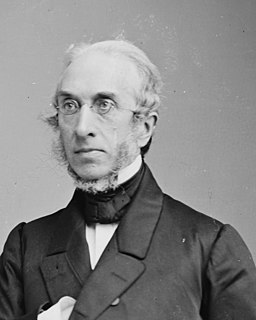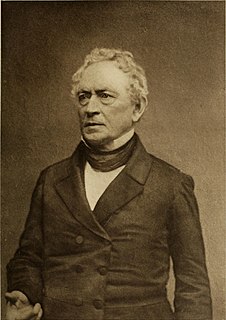A Quote by Robert Charles Winthrop
The noblest contribution which any man can make for the benefit of posterity, is that of character. The richest bequest which any man can leave to the youth of his native land, is that of a shining, spotless example.
Related Quotes
Thirdly, the supreme power cannot take from any man any part of his property without his own consent: for the preservation of property being the end of government, and that for which men enter into society, it necessarily supposes and requires, that the people should have property, without which they must be supposed to lose that, by entering into society, which was the end for which they entered into it; too gross an absurdity for any man to own.
What the working man sells is not directly his Labor, but his Laboring Power, the temporary disposal of which he makes over to the capitalist. This is so much the case that I do not know whether by the English Law, but certainly by some Continental Laws, the maximum time is fixed for which a man is allowed to sell his laboring power. If allowed to do so for any indefinite period whatever, slavery would be immediately restored. Such a sale, if it comprised his lifetime, for example, would make him at once the lifelong slave of his employer.
The man who stands upon his own soil, who feels, by the laws of the land in which he lives,-by the laws of civilized nations,-he is the rightful and exclusive owner of the land which he tills, is, by the constitution of our nature, under a wholesome influence, not easily imbibed from any other source.
When one speaks of humanity, the idea is fundamental that this is something which separates and distinguishes man from nature. In reality, however, there is no such separation: "natural" qualities and those called truly "human" are inseparably grown together. Man, in his highest and noblest capacities, is wholly nature and embodies its uncanny dual character. Those of his abilities which are terrifying and considered inhuman may even be the fertile soil out of which alone all humanity can grow in impulse, deed, and work.
He is the richest man who enriches his country most; in whom the people feel richest and proudest; who gives himself with his money; who opens the doors of opportunity widest to those about him; who is ears to the deaf; eyes to the blind, and feet to the lame. Such a man makes every acre of land in his community worth more, and makes richer every man who lives near him.
the only way in which a human being can make some approach to knowing the whole of a subject, is by hearing what can be said about it by persons of every variety of opinion, and studying all modes in which it can be looked at by every character of mind. No wise man ever acquired his wisdom in any mode but this; nor is it in the nature of human intellect to become wise in any other manner.
The god which the vast majority of professing Christians love is looked upon very much like an indulgent old man, who himself has no relish for folly, but leniently winks at the indiscretions of youth...For one sin God banished our first parents from Eden; for one sin all the posterity of Canaan fell under a curse which remains over them to this day; for one sin Moses was excluded form the promised land; Elisha’s servant smitten with leprosy; Ananias and Sapphira were cut off from the land of the living.
































